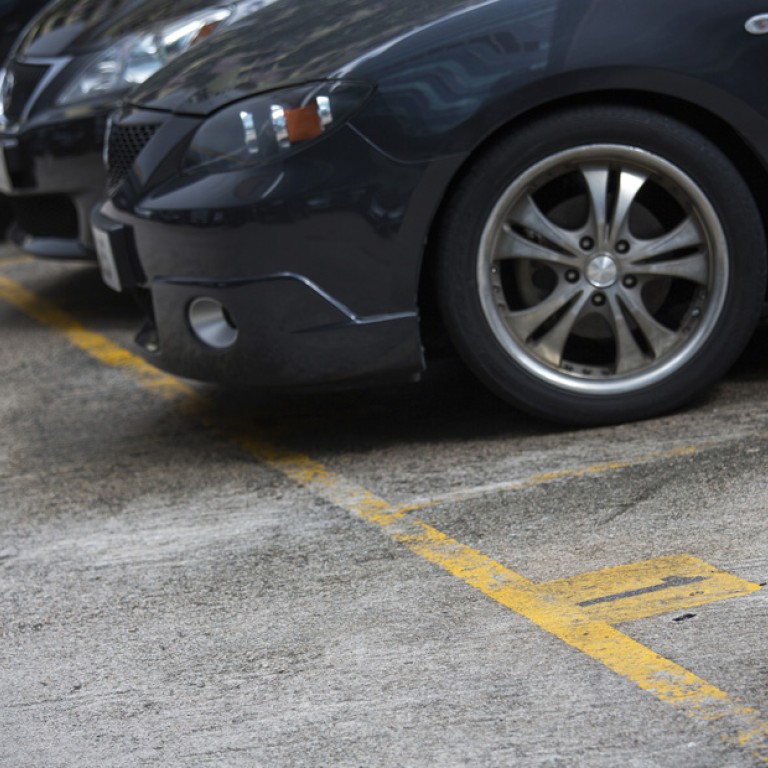
20pc harder to find a parking spot
As police call for HK$820 parking fines, it is revealed that the number of cars has gone up by a fifth, while places to park them lag far behind
The number of parking places in the city is falling far short of the increase in cars, an analysis of figures has shown amid a police call for a big increase in parking fines.

With queues outside shopping centre car parks growing, Automobile Association vice-president James Kong Yat-hung said: "I haven't seen any increase [in parking spaces] at all."
Transport analyst Dr Hung Wing-tat said the city needed a comprehensive transport policy, including charges for vehicles entering congested areas.
"The government knows there are not enough parking places, but they choose to ignore it," said Hung, an associate professor in the Polytechnic University's Department of Civil and Structural Engineering.
The Transport Department's figures show the total number of parking places in Hong Kong increased by 2.41 per cent from 669,075 in 2009 to 685,216 last year.
During the same period, the number of private cars increased by a fifth to 471,841.
Chief Superintendent Paul Stripp of the traffic police said last month that the present HK$320 parking fine was not enough to deter illegal parking. He wanted to see it increase by HK$500 to HK$820. In the first 10 months of last year, 860,339 parking tickets were issued, a 13 per cent increase on 2012.
Kong said a rise of HK$100 would be acceptable, but added that it would be "illogical" for the government to impose hefty fines without providing enough spaces for drivers to park legally.
"The rate of increase in private cars in Hong Kong is quite stable. The government knows clearly how many private cars we have. It is its responsibility to provide enough space for the cars here to park," he added.
"The impact of illegal parking in Hong Kong is not too serious. Usually when people complain, the police come, so the roads are not too often blocked by cars parked in the wrong spots."
Hung said the HK$320 penalty failed to stop wealthier people with drivers from parking illegally because they could just drive away when police officers or traffic wardens approached.
Of the available parking spaces, the number of meters was little changed at 18,000. The number of spaces in government car parks fell by 6,830 in 2009 to 6,039 after the Tsuen Wan Transport Complex car park was shut.
Of the 661,000 private parking spaces in the city, only 195,000 were open to the public, 3.5 per cent down from 202,000 in 2009.
The department said it monitored the supply and demand of parking spaces "to maintain an overall balance as far as possible".
Vehicle licences carried no requirement regarding parking availability, a spokesman said.
He added that the reduction in public parking-space supply was due to the demolition of old buildings and termination of car parks under short-term tenancies.
Gary Fan Kwok-wai, deputy chairman of the Legislative Council's transport panel, said the government should review the rate at which licences were issued if it estimated the increase in parking spaces would continue to lag behind the rise in the number of cars.
